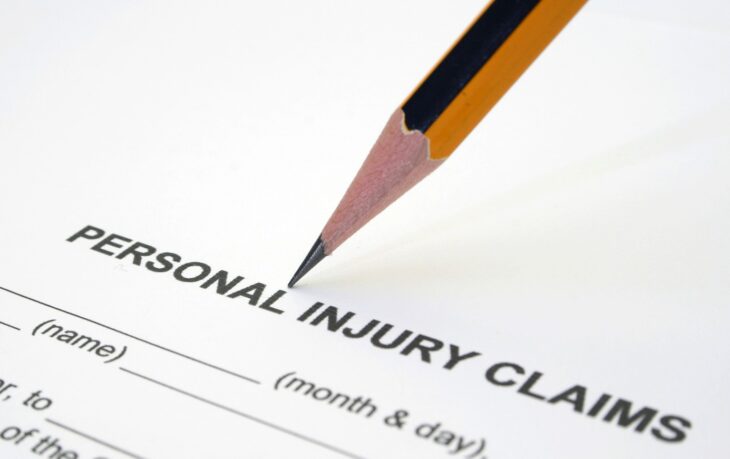Nowadays, there are various reasons why someone would register a personal injury claim. And, no matter if people choose to file it when they sustain wounds from an automobile collision or when they experience some form of medical malpractice, it’s important for all of them to know the value of their claim, as well as how it can be calculated.
But, calculating the compensation isn’t a simple task, it could get confusing and daunting, especially if you’re suffering from an impairment, which is why you may be wondering – what are the varied forms or personal injury cases and how much are they worth? Fortunately, this is exactly what we’ll explain in this article, so, let’s take a closer look:

Source: Wiseman Lee
Contents
What is My Claim Worth?
Regardless of how you got injured, you’ll probably have some form of loss, which insurance organizations describe as “damages”. There are actually two categories of these losses/damages, including:
1. Special Losses/Damages
Also referred to as financial damages, which are basically the funds you lost and will continue to lose because of the carelessness of another party. This covers the medical charges and expenses, as well as lost income if you had to miss work due to the recovery process from your wounds.
2. General Losses/Damages
Also referred to as non-financial damages, which are basically non-material losses you’ve experienced and may continue to experience in the future. This covers pain and discomfort, as well as emotional shock and conditions like depression, PTSD, insomnia, or any other emotional problem that is a primary result of the wounds you sustained.

Source: myxlaw.com
So, How Can I Determine The Special Losses?
In order to determine the special losses, you’ll have to add together the fees and costs resulting from the trauma you sustained. These losses include the actual amounts of money of your previous and future lost earnings, all the medical expenses including therapy, expenses for the medication/transportation to the hospital, replacement expenses such as housekeeping or childcare, as well as destroyed or lost personal objects.
When you add up all of the aforementioned things together, you can use it as a foundation for the value calculation. Keep in mind, without the medical bills, you won’t be able to file the appeal, hence, ensure that you keep all the medical bills, even the ones that may have been covered by your healthcare plan. Some forms of medical services that’ll involve more than one bill include X-Rays, CT, and MRI scans, as well as different test results.

Source: Medium
So, How Can I Determine The General Losses?
When it comes to determining the general losses, it often becomes a bit more tricky, which is why you may want to opt for hiring a law firm such as McGowan, Hood & Felder, LLC that’ll aid you with assessing your general losses. Every, single injury case is different, meaning that the aches you’re feeling could never be the same as another person. Of course, people can sustain the exact same injuries, however, one person may experience worse aches and difficulty than another.
These general losses include conditions like emotional distress, physical discomfort, panic and anxiety, inability to focus on different tasks, as well as the continuous loss of sleep. To get a close appraisal of your damages, you should multiply the total losses by 1 or 2 since most insurance organizations will accept this for mild to moderate injury claims. But, if you got severely injured, you’ll have to hire an attorney that’ll assist you with getting fair coverage for conditions such as:
- Extreme Mental Agony – the worse your mental agony is, the higher your compensation will be. If you require the care of mental health experts due to your injuries, this will be easy to prove.
- Continuous Pain or Long-Lasting Injuries – if you suffered from invasive treatments, extreme wounds, or long-lasting physical injuries such as amputation of a limb, paralysis, or scarring, you could get higher compensation.
- Terrible And Shocking Events – any injury that occurred due to a terrible or shocking event such as an airplane crash, shooting, or being trapped in a vehicle that is on fire will result in higher compensation.
When it comes to the general damages, assigning a value to it will be entirely up to you. After all, only you can assess and understand the pain and suffering you’re experiencing and feeling. And, since the most challenging part is to convince the insurance company to actually consider paying for your compensation, you must ensure that you hire a personal injury attorney that’ll help you with getting the compensation you deserve.

Source: J&Y Law Firm
How do I Make a Demand?
Before anyone could actually get compensated for the personal injury claim they made, they must work together with their lawyer on creating a strong case. This means that it’s wiser for you to hire an attorney that will help you with convincing the insurance organization that:
– Their client owed you a duty of care, which means that they had a duty to avoid people from getting harmed,
– Their client was negligent by failing to create a safe environment or by doing something wrong,
– Their client’s negligence directly caused your wounds,
– Their client is liable, which means that they’re responsible for your losses.
Keep in mind, you’ll need evidence to support your case, which means that you’ll need to gather various pictures of the accident and your injuries, all the witness statements that were given to the law enforcement, medical records, and bills, as well as any other proof that can support your claim. Once you gather all of the aforementioned things, you’ll have all the important documents for beginning the negotiations.
If you choose not to hire an attorney and handle the negotiations on your own, you’ll have to start by preparing a written demand for your claim. The demand you’ll make is the total amount of money you believe is fair compensation for the wounds your sustained, all of which need to be supported by the copies of your medical records and bills, as well as all the evidence that’ll describe and show your losses.

Source: freepressdirectory
Conclusion
There are a lot of factors that’ll influence the compensation you’ll get when filing a personal injury claim. Now, depending on the events that happened and the injuries you sustained, it might be wise to hire an attorney that’ll help you with your case, which is especially true if you were severely harmed.
So, now that you’re aware of all the things you’ll need to consider, do, and gather, you shouldn’t lose any more of your time. Instead, you should return to the beginning of this article and start determining what types of damages you sustained, as well as what you’ll need to do to make a claim.
